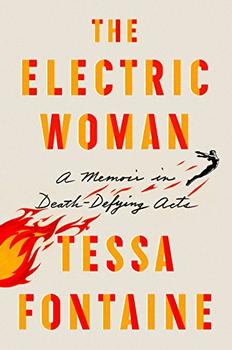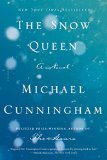Summary | Excerpt | Reviews | Beyond the book | Read-Alikes | Genres & Themes | Author Bio

Lost and Found at a Bar on the Edge of the World
by Tim SultanA "dive bar" is tough to define with any precision. Much like Supreme Court Justice Potter Stewart's definition of pornography ("I know it when I see it"), the dive bar is as much a feeling as it is a place. But they share some common traits: they are unglamorous, usually tucked away from the beaten path, serve a limited range of drinks, their patrons are mostly regulars, and the dimly lit and dated décor puts the "funk" in "functional."
Perhaps the best concise description comes from Tim Sultan's memoir of one of the great dive bars in the world, Sunny's Nights: Lost and Found at a Bar on the Edge of the World. At Sunny's Bar, he notes simply, "There was a sense that one was off the leash here."
Sunny's Nights is the story of Sultan's accidental foray into Red Hook, Brooklyn one summer night in 1995 and his almost arbitrary decision to drop in to a dimly lit, barely noticeable establishment that was soon to change his life. After driving aimlessly, he finds himself lost in the once-vibrant Brooklyn waterfront neighborhood. Attracted by a lone neon sign in the window ("Bar") Sultan, who admits "where bars were concerned, my spirit of inquiry always seemed to prevail over a sense of caution," dives in. Entering the place, he finds a group of patrons sitting in the dark around a film projector, watching flickering images of modern dance pioneer, Martha Graham. He takes a seat at the bar and catches the next few attractions: abstract short films and silent cityscapes of New York in the 1970s. The eclectic films – as well as impromptu dramatic readings, sea shanty singing, poetry readings, dramatic monologues, and blues guitar – would all come to be part of just another night at Sunny's.
Sunny's Nights tells the story of Sultan's relationship with the bar over the next two decades – and most especially with Sunny Balzano, the bar's owner. Balzano – "He resembled Tony Bennett, if Tony Bennett had last seen a barber in 1957" – is one of the more original characters readers are likely to encounter in contemporary non-fiction. Even his eclectic resume – trained at New York City's legendary drama school, The Actors Studio," part of Andy Warhol's circle, self-taught abstract expressionist, world traveler, boxer, air force mechanic and former associate of the Indian guru Bhagwan Shree Rajneesh – doesn't really get at how endearingly original Sunny is. In addition to opening his bar only every Friday for much of its existence, he allows patrons to make their own drinks, recites Shakespeare and Beckett, greets the very occasional new patrons of his bar as close friends, sings, paints, kayaks in New York Harbor, and tells captivating stories of life in wartime Red Hook among the mobsters and war heroes who frequented what was once his grandfather's bar before it became his father's, and then his.
Balzano's unfettered originality infects the place, encouraging spontaneous performance and familial camaraderie among the rough-but-warm-hearted collection of hangers on and hardboiled locals. "The culture that I came upon at Sunny's was a distinct and self-generated one, as you might find on an island far from any shore."
Woven into the story of Sultan's enchantment with Sunny's (he eventually left his job at the Paris Review offices in Manhattan to work as a bartender at Sunny's once the place began opening more regularly) is the story of the rise, fall, and gentrification of Red Hook, Brooklyn, a once-seedy and crime-filled backlot to Manhattan's glittering cinemascape. " Its inaccessibility, its insularity, the residue of a violent past – whatever the cause, Red Hook was as quiet as a neglected cemetery in the spring of 1995 when I arrived."
Sunny's Nights also chronicles the perhaps inevitable changes to the bar over the past decade, a nod to the "new times" wrought by re-development of the neighborhood (for many years, Sunny didn't even bother to apply for a liquor license). There is an elegiac quality to the last few chapters as we watch a once truly unique bar become the newly christened destination for a crowd of hipsters re-discovering Brooklyn's neglected neighborhoods in the last decade:
A trip to Sunny's had always been something of a convergence of present and past. And, at its best moments, of reality and unreality. But in its newest edition, there was a good deal of the former and less and less phantasmagoria.
Sunny's Nights is a warm-hearted book, bogged down only by the decline in interest when Sultan pursues any of the multiple digressions about his own biography – not completely uninteresting but still a drop-off from the mercurial Sunny Balzano. And the book loses much of its momentum as Sunny begins to decline in health and is no longer involved in the day-to-day operations of the bar. I suspect most readers will be ready to leave before last call is sounded.
One final, bittersweet post-script attends the publication of Sultan's book: Sunny Balzano died recently, on March 10, 2016. In his memorial tribute to Balzano in The New Yorker, Sultan wrote: "Sunny had a great appreciation for each person's significance and he reflected that worth back on us. One always seemed to feel better after a visit with Sunny." After reading Sunny's Nights, most readers will be inclined to agree. Some might even wish to raise a glass to him the next time they're in their favorite dive bar, their appreciation for the specialness of such places enhanced by Sultan's warm and wise remembrance.
![]() This review was originally published in The BookBrowse Review in April 2016, and has been updated for the
April 2018 edition.
Click here to go to this issue.
This review was originally published in The BookBrowse Review in April 2016, and has been updated for the
April 2018 edition.
Click here to go to this issue.

If you liked Sunny's Nights, try these:

by Tessa Fontaine
Published 2019
Tessa Fontaine's astonishing memoir of pushing past fear, The Electric Woman, follows the author on a life-affirming journey of loss and self-discovery - through her time on the road with the last traveling American sideshow and her relationship with an adventurous, spirited mother.

by Michael Cunningham
Published 2015
The Snow Queen, beautiful and heartbreaking, comic and tragic, proves again that Cunningham is one of the great novelists of his generation.
Your guide toexceptional books
BookBrowse seeks out and recommends the best in contemporary fiction and nonfiction—books that not only engage and entertain but also deepen our understanding of ourselves and the world around us.